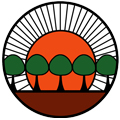Water Management
A critical aspect of oil palm cultivation is water management, as oil palm trees require significant amounts of water. Unstable water supplies may lead to unnecessary stress to trees and compromise both vegetative growth and fruit production.
Therefore, sustainable measures to managing water supply are required to be implemented, in order for oil palm trees to achieve optimum growth.
[quix id='55' name='Water Management']
Some of the water management measures implemented by SALCRA include:
- Management of fresh water on undulating/ hilly/ inland soils
- Management of fresh water management on flat and coastal soils
Planting/Replanting Technique
SALCRA practices a zero-burning technique both in the replanting and development of new areas for oil palm plantations. Palms are felled, chipped and/ or shredded, and trees and sapling are staked in windrow and left to decompose on site.
[quix id='54' name='Planting & Replanting Technique']
This approach is superior to the slash-and-burn technique because:
- It allows complete return of organic matter to the soil, which helps to preserve, restore and improve soil chemical and fertility as well as physical properties of the soil.
- Immediate replanting of trees can be carried out, as the new stands can be planted simultaneously while felling and shredding are being done.
- Replanting can be done without violating the Environmental Quality (Clean Air), and contributes positively towards efforts in minimizing global warming.
Land Management
In keeping with the Organisation’s philosophy on sustainability, SALCRA formulated its plantation development to include the following criteria:
- Retaining as much natural forest cover on hill slopes. Development of areas exceeding 25 degrees will incorporate mitigating measures to reduce surface run-off and soil erosion. Terracing, planting of legumes and retaining of covers are practiced to reduce surface run-off and soil erosion.
- Construction of terraces for any slope with gradient of more than 10 degrees. Forest cover serves as reserves for natural enemies of oil palm pests, and is also part of the effort to conserve local flora and fauna.
- Retaining and maintaining riparian reserves to minimize soil run-off. These reserves function as a filtration system to preserve the quality of water entering rivers.
[quix id='53' name='Land Management']
[quix id='87' name='child_menu_land_management']
Malaysian Sustainable Palm Oil (MSPO)
The Malaysian Sustainable Palm Oil (MSPO) is a Malaysian standard to address the sustainability aspects of the local palm oil industry, as well as an ethical platform to boost world market access.
SALCRA is in the midst of incorporating its environmental and sustainable operations in all estates and mills to be in compliance with the MSPO certification, in keeping with the aim of the Minister of Plantation Industries and Commodities to ensure palm oil produced from Malaysia will be certified with MSPO by 31st December 2019.
[quix id='52' name='MSPO']
Codes of Practices
Codes of Practices (CoPs) are managed by the Malaysian Palm Oil Board (MPOB) to ensure good agriculture practices are applied in the oil palm industry.
SALCRA has since adopted three CoPs:
- Code of Good Agricultural Practices (CoGAP)
- Code of Good Milling Practices (CoGMP)
- Code of Good Nursery Practices (CoGNP)
[quix id='48' name='Code of Practice']
Almost all of SALCRA infrastructure and facilities are certified with the respective Code of Practices. All estates have been certified with the Code of Good Agricultural Practices (CoGAP), and with the exception of LAPOM 1 and LAPOM 2, all mills have been certified with Code of Good Milling Practices (CoGMP), whilst the two nurseries – Roban South and Pakit nurseries – are certified with the Code of Good Nursery Practices (CoGNP).
ENVIROMENTAL AND SUSTAINABILITY
[quix id='74' name='envi_sustain_bg']
[quix id='191' name='Environmental practices']
CORPORATE SOCIAL RESPONSIBILTY
[quix id='63' name='csr_bgg']
SALCRA’s CSR Initiatives:
CSR Project: SALCRA Extending A Helping Hand to SDNU in Enhancing Bahasa Melayu Education in Sarawak
[quix id='264' name='CSR PROJECT: SALCRA EXTENDING A HELPING HAND TO SDNU IN ENHANCING BAHASA MELAYU EDUCATION IN SARAWAK']
SALCRA recently distributed stationery items to the Sarawak Dayak National Union (SDNU) in support of their upcoming SPM Bahasa Melayu Workshop. The main objective of this workshop is to help equip the SPM candidates with useful exam answering techniques and effective study tips. The event will benefit a large number of students, thanks to SALCRA's generous donation of stationery items.
At a recent handover at SALCRA Headquarters, Mr Gat Belabot, Vice Chairman of SDNU received the stationery items. SALCRA was represented by General Administration and Quality Manager, Jennifer Lendai Kundat.
Commenting on the handover, Jennifer said, "We are pleased to support the SDNU in their efforts to improve the academic performance of students. We recognize the importance of education and are committed to supporting initiatives that benefit the community. We hope that our contribution will make a difference in the lives of these young students, and we wish them all the best in their academic pursuits."
The SDNU expressed their heartfelt appreciation for SALCRA's contribution, which will undoubtedly help make the workshop a success. The event will benefit a significant number of students and help them achieve their academic goals.
Since SALCRA’s establishment in 1976, the land development organisation has worked closely with local community on several programmes in Sarawak with a focus on enhancing and uplifting community well-being.
By Priscilla Grace Poul
22/02/2023 | 11:00:52 AM
SALCRA distributed food baskets to its participants
SALCRA has continued to assist its participants who were affected by the Covid-19 pandemic in 2021. To ensure the welfare of the participants in terms of getting essential items, SALCRA has implemented the food basket programme to households throughout the four (4) regions which were affected by the Movement Control Order (MCO). Many of them have limited sources of food due to work restriction. On the other hand, some may had lost their jobs, especially those daily paid workers.
As an initiative, SALCRA had distributed 2,929 food baskets to the affected participants that were in needs. The distributions were held in Bau – Lundu, Serian, Sri Aman and Saratok Region. The food assistance is one of its initiatives in the Corporate Social Responsibility programmes. A total of 73 villages / longhouses was affected during the MCO. The respective regions that received the food baskets were as follows;
[quix id='265' name='Table_CSR_Pandemic']
Among the essential items included in the food baskets were rice, eggs, cooking oil and sugar. We hope that this small effort will help to lessen their burdens and help the participants during the pandemic.
[quix id='134' name='Carousal CSR']
by Marcella Sharen Mos
16/7/2021 | 10:00:52 AM
Company Policy
Sarawak Land Consolidation & Rehabilitation Authority (SALCRA) follows a group of policies and guidance statements that are designed to ensure that the SALCRA operates in a way that meets or exceeds the requirements of our stakeholders, meets all legal requirements, and has an overall beneficial impact on the environment.
[quix id='40' name='Company Policy']
Media & Gallery
[quix id='58' name='Image & Gallery']
[quix id='23' name='Achievement & Recognition']
Term & Condition
Below are terms and conditions that govern the use of this Website and state your rights and obligations when accessing and/or using the information and services on the site.
If you are accessing this portafl, you acknowledge and agree that these terms and conditions are binding on you and constitute an agreement between you, the customer, and us, the owner of this Website, for such access and/or use.
These current terms and conditions supersede any previous terms and conditions you may have received or accessed to date via the website. Your continued use and/or access of the services will be deemed to be your acceptance of these current terms and conditions.
Limitation of Liability
You expressly understand and agree that the owner of this Website shall not be liable for any direct, indirect, incidental, special, consequential or exemplary damages, including but not limited to, damages for loss of profits, goodwill or other intangible losses resulting from:
The use or inability to use the website.
-
- The cost of procurement of substitute goods and services resulting from any goods, data, information or services purchased or obtained or messages received or transactions entered into through or from the website.
- Unauthorized access to alteration of your transmission data.
- Statements or conduct of any third party on the website.
- Any other matter relating to the website.
Links
This Website may provide links to other websites. Such linked websites are owned and operated by third parties and as such, the owner of this Website has no control over such sites and resources. You acknowledge and agree that this Website is not responsible for the availability of such external sites or resources, and does not endorse and is not responsible or liable for any contents, advertising, products, or other materials on or available from such sites or resources. You further acknowledge and agree that this Website shall not be responsible or liable, directly or indirectly, for any damage or loss caused or alleged to be caused by or in connection with use of or reliance on any such content, goods or services available on or through any such site or resource.
Modifications to Terms of Service
This Website reserves the right at all times to vary, modify, delete or add to these Terms and Conditions by giving you prior notice thereof. However, in cases of urgency or in order to protect the security of the website or in other circumstances beyond our control, when this Website finds it necessary to vary, modify, delete or add to these Terms and Conditions, it may do so without prior notice to you. It is accepted that in order to keep yourself up-to-date with any variation, modification, deletion or addition to these Terms and Conditions, you agree to access and peruse these Terms and Conditions periodically and on a regular basis. You further agree and accept that your continued access and use of these Terms and Condition (as varied or modified from time to time) will amount to your acceptance of any variation, deletion, modification or addition to these Terms and Conditions.
Termination
This Website may terminate your access to any part or all of the services and any related service(s) at any time, with or without cause, with or without notice, effective immediately. This Website may also terminate or suspend your account for inactivity, which is defined as failing to sign-in to the service for an extended period of time. You agree that this Website shall not be liable to you or any third party for any termination of your access to the Service.
Modification to the Service
This Website reserves the right at any time and from time to time to modify or discontinue, temporarily or permanently, the service (or any part thereof) with or without notice. You agree that this Website shall not be liable to you or to any third party for any modification, suspension or discontinuance of the service.
General
The headings used in these Terms and Conditions are for reference and convenience only and shall not be taken into consideration in the interpretation or construction of these Terms and Conditions.
If any provision of these Terms and Conditions is held to be illegal or invalid under present or future laws or regulations effective and applicable, such provision shall be fully severable and these Terms and Conditions shall be construed as is such illegal or invalid provision had never comprised part of these Terms and Conditions and the remaining provisions of these Terms and Conditions shall remain in full effect and force and shall not be affected by the illegal or invalid provision or its severance from these Terms and Conditions.

